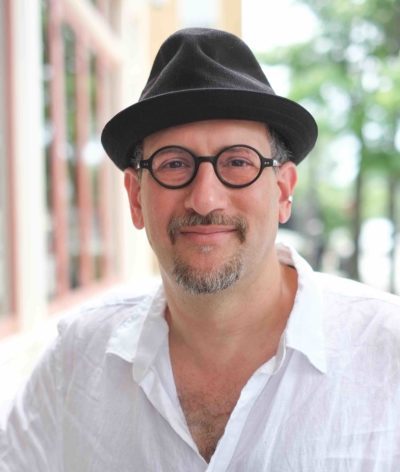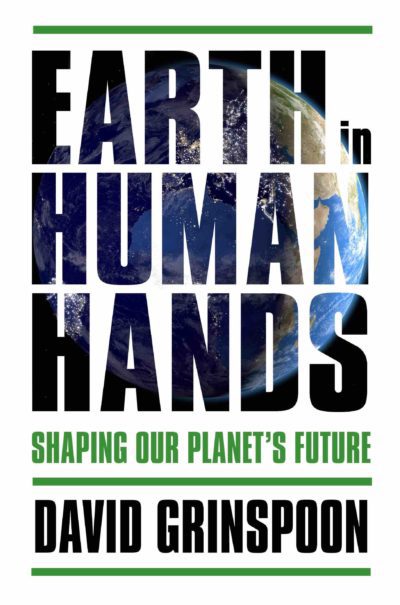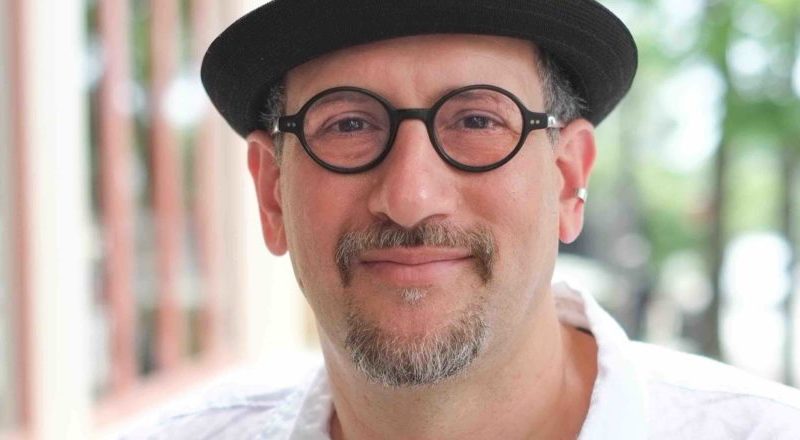INTERVIEW: Shaping Earth’s future with David Grinspoon

Climate change and the many other human-made problems on planet Earth are the subject of the new book from planetary scientist and astrobiologist David Grinspoon, who serves as senior scientist at the Planetary Science Institute and adjunct professor at the University of Colorado. Earth in Human Hands: Shaping Our Planet’s Future not only highlights the many perils of this planetary home but also offers several glimmers of hope on how the instigators of these changes (spoiler alert: that’s us) can turn things around and save this precious place of wonder.
Grinspoon details, over the course of 544 pages, the many different changes that are accelerating on the planet. That list includes climate change, but he goes beyond that hot-button issue and digs deeper into the profound alterations to the landscape. To combat the seemingly inevitable destruction, he recommends becoming “planetary engineers,” or “conscious shapers of our environment and caretakers of Earth’s biosphere.”
In many ways, Grinspoon is offering a suggestion (or ultimatum) that the world’s population needs to start treating the planet with the same respect as a well-manicured lawn or carefully-pruned flower bush. Caretaker is an interesting role, one that comes with the expectation of obligation and recognition of obvious influence. Recent headlines in the United States may offer evidence of American politics heading in the wrong direction.
Grinspoon will talk about his new book at Salon on Stockton Street, a literary festival in Princeton, New Jersey, March 31 to April 2. The author’s event will take place 11 a.m. Saturday, April 1 at the Center for Theological Inquiry’s Luce Hall at 50 Stockton St. BBC broadcaster Sally Magnusson will interview Grinspoon and three other authors throughout the day.
Recently, Hollywood Soapbox exchanged emails with Grinspoon about his new book and work in planetary science. Questions and answers have been slightly edited for style.
What compelled you to write Earth in Human Hands?
I felt that my background as a planetary scientist and astrobiologist gave me a different perspective on our current environmental dilemmas, and one that might be useful in helping people come to terms with the role that humanity is playing on the planet, and how we can approach our future and that of our descendants. When you take a deep time, and deep space, view of Earth, you see that what is happening now is not just a challenge for our civilization, but a fundamental change in the way the planet operates.
And when you look at the long story of human history, meaning the one that has unfolded over millions of years, you see that this is not the first time we’ve faced existential threat, and that we’ve survived before by reinventing ourselves and our relationship with the natural world. Now we need to do so again, but our history implies that we have this capacity. With these stories, and these insights, I want to help re-frame the task we face now as we head farther into this challenging century.
Do you feel, with the current administration in Washington, D.C., that your work has taken on a greater importance?
Yes, absolutely. One way in which I feel it is very important right now is that many thinking, concerned, activist people are quite anxious, alarmed and disheartened. As I’m going around the country giving talks and leading discussions about Earth in Human Hands, I find that people are in great need of some larger perspective. We need to have a long-term vision of where we want to go to help us through this time of alarming short-term threat.
People are telling me that they find my book, and my perspective, comforting. I certainly don’t gloss over the urgency of our current climate threats, but I also encourage a long-term view in which it becomes quite clear that we will get through this, in some fashion. The question is not “Will humanity survive or not?” We will survive. The question is “How can we help encourage the best path toward a sustainable future, one in which we experience the least amount of damage and loss and destruction along the way?” I am frequently told that people find my perspective encouraging, and right now this seems important and valuable.

What can the average human being do to combat climate change, or are most of the workable solutions at the national and global level?
Well, none of us is the average human being. Those of us in the rich, technologically developed countries need to work very hard to change our energy and agricultural systems in ways that lessen the damage we are doing to the natural systems upon which we depend. Most urgently this means reducing our output of carbon dioxide.
Local, state and city level actions are quite important in these efforts, especially during the next few years when it seems as though our federal government is going to be throwing an ignorant tantrum of delaying and ignoring the inevitable. Fortunately, this will not last, and in the meantime other governments around the world will assume the mantle of leadership that we are tossing to the ground.
Who do you believe is your intended audience with the book? Was it important to write in a style that the science and history were understandable to the layperson?
My audience is anyone who likes to read a good, thought-provoking and enjoyable book. I write for the general public. I picture myself having a conversation in a bar with someone interested in what I have learned and realized through my studies and my experiences. That bar-buddy is my audience.
When did you personally ‘awaken to our role as a force of planetary change’?
Honestly, I think this awakening is just my life story. I’m a child of the space age and also of the earliest environmental movements, which were inspired by the first views of the whole Earth seen from space. I grew up fascinated with space exploration and also reading Carl Sagan, Lewis Thomas, Rachel Carson, E.O. Wilson and others. When you look at Earth deeply through the lens afforded by modern space exploration and Earth science, and look deeply at what is happening to the Earth now, you are led to a view of the human role on Earth as a dramatic new stage in planetary evolution. We are now a geological force, and unlike any other geological force, we have the potential to realize what we are doing and change course to a less destructive and more sustainable direction. When we realize this potential, it then becomes our responsibility to enact it.
By John Soltes / Publisher / John@HollywoodSoapbox.com
David Grinspoon will discuss his new book, Earth in Human Hands: Shaping Our Planet’s Future, at Salon on Stockton Street 11 a.m. Saturday, April 1 in Princeton, New Jersey. Click here for more information and tickets.

